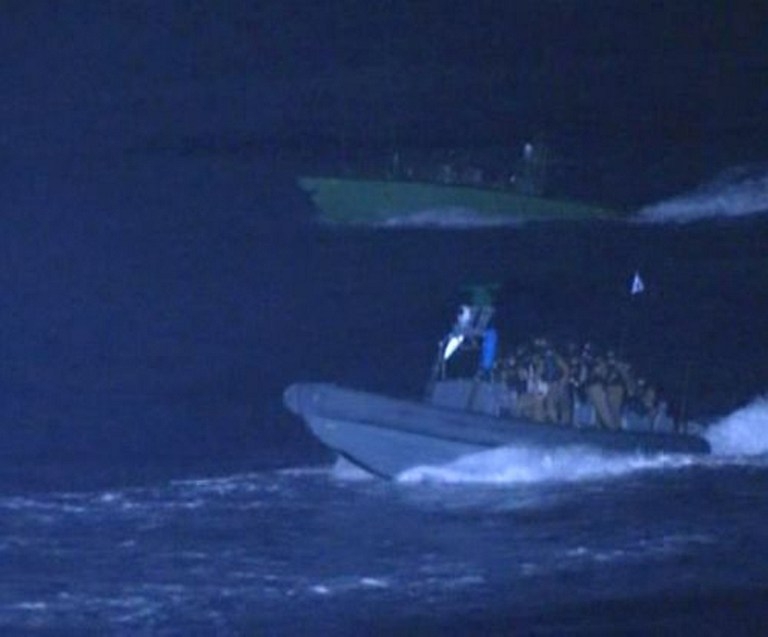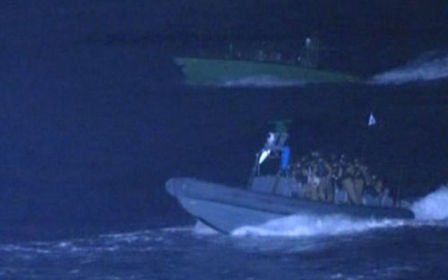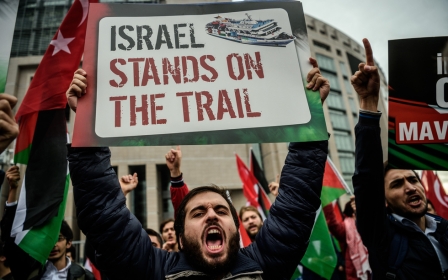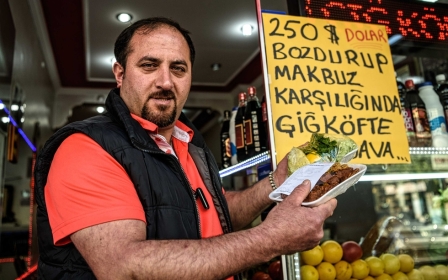Turkey drops court case against Israeli raid on Gaza flotilla

An Istanbul court on Friday dropped a case against four top former Israeli commanders who were being tried in absentia over the 2010 deadly storming of a Turkish ship bound for Gaza that caused an over half-decade crisis in ties.
Ten Turkish citizens lost their lives were killed in the raid that saw Israeli commandos storm the Mavi Marmara ship. But dropping the charges was a key pillar of a deal agreed between Israel and Turkey this June to normalise bilateral ties.
An arrest warrant for the four charged was also withdrawn, Gulden Sonmez, a lawyer for the victims, wrote on Twitter after a closed hearing in Istanbul.
Mustafa Ozbek, a spokesman for the Humanitarian Relief Foundation (IHH) charity which organised the bid in 2010 to break Israel's Gaza blockade, confirmed to AFP that the case had been withdrawn.
Prosecutors had been seeking life sentences for the alleged involvement of former Israeli military chief of staff Gabi Ashkenazi, former navy chief Eliezer Marom, former military intelligence head Amos Yadlin and former air force intelligence chief Avishai Levy, who went on trial in absentia in 2012.
The decision had been expected after the prosecutor told the Istanbul court last week that the case against the Israelis should be dropped because of the agreement.
Before the verdict was read out, tumult erupted in the courthouse as lawyers and supporters of the victims denounced what they said was a travesty of justice.
Lawyers and families walked out of courtroom shouting "damn Israel" and "Mavi Marmara our honour".
"No matter what court decides about those who committed the crime... we believe that they were convicted by both the law and the conscience of the people," said the victims' lawyer Yasin Samli.
"We were thrown out of the court room," added Cigdem Topcuoglu whose husband was killed on board the Mavi Marmara, adding: "We want justice, nothing else."
'Trampling on the law'
Turkey and Israel agreed to the normalisation after they held long-running secret talks in third countries, with Israel offering an apology over the raid and $20m in compensation.
Israel also agreed to allow Turkish aid to reach Gaza as part of the agreement.
Under the terms of the deal, both sides also agreed that individual Israeli citizens or those acting on behalf of the Israeli government would not be held liable - either criminally or financially - for the raid.
"Political considerations are outside the scope of this case. To decide based on political motives amounts to trampling on the law," said Mehmet Sari, head of the Turkish lawyers' association.
One of the final key elements of returning to normal relations was the exchange of ambassadors.
Israel's envoy Eitan Naeh presented his credentials to Turkish President Recep Tayyip Erdogan earlier this week.
Meanwhile, Turkish Prime Minister Binali Yildirim's policy adviser Kemal Okem will start work as Turkey's ambassador to Israel in the next days.
But the two sides are already working to bring cooperation back to former levels and are holding talks on building an ambitious pipeline project to pump Israeli gas to Turkey and Europe.
Nevertheless, considerable tensions remain with Erdogan presenting himself as a champion of the Palestinians and regularly meeting with Hamas chief Khaled Meshaal.
Israel, the United States and the European Union all view Hamas, which governs the Gaza Strip, as a terrorist organisation.
Ankara has also loudly condemned a bill being discussed in the Israeli parliament to limit the volume of calls to prayer at mosques.
New MEE newsletter: Jerusalem Dispatch
Sign up to get the latest insights and analysis on Israel-Palestine, alongside Turkey Unpacked and other MEE newsletters
Middle East Eye delivers independent and unrivalled coverage and analysis of the Middle East, North Africa and beyond. To learn more about republishing this content and the associated fees, please fill out this form. More about MEE can be found here.




